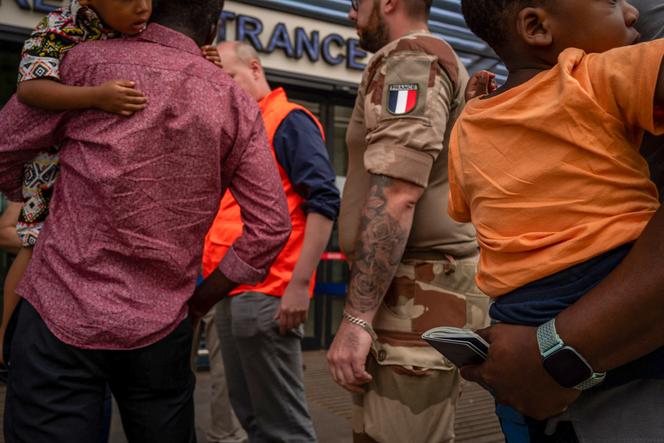


How can France's position in Africa be saved? The report from a French parliamentary fact-finding mission that was presented to the Foreign Affairs Committee on Wednesday, November 8, could be read as a survival guide in a time of crisis. Against a background of demonstrations of hostility towards French policy in Africa, MPs Bruno Fuchs (Mouvement Démocrate, MoDem, centrist Macron allies) and Michèle Tabarot (Les Républicains, LR, right-wing) – co-authors of the 175-page report – analyze what they call a rising tide that "risks spreading without our country being able to respond."
For several months, they interviewed heads of state, diplomats and military officials, both in France and in French-speaking African countries – excluding those in North Africa – to probe Paris's failures on the continent. Their findings are damning.
From the outset, the two MPs underline the inconsistency of French rhetoric towards African states. President Emmanuel Macron, like his predecessors, had promised from the start of his first term to close the chapter on France's troubled relations with African states, in favor of a strategy oriented towards civil society, but he has failed to break with the perception of France as an ally of authoritarian regimes. His presence at Idriss Déby Itno's funeral in Chad in 2021, seated next to his son and successor, General Mahamat Idriss Déby, was perceived by public opinion in many African countries as an endorsement of this transition of power within the Déby family, with no constitutional legality.
On the other hand, France has proven inflexible in its approach to the juntas in Mali, Burkina Faso and, more recently, Niger, refusing to recognize the new military authorities in these countries. An attitude which – according to the report's authors – renders French doctrine incomprehensible. "Not putting an end to this policy of double standards is to continue to stoke skepticism and rejection, and to fuel the fantasy of a hidden French agenda," they noted, recommending a "just distance."
"We must continue to advocate for our democratic values, but not to interfere in domestic affairs. On the LGBT issue in particular, which is criminalized in many countries, to come in and say that we, the French, are right, that one must bow to our values, is to accentuate rejection. When we deal with the Chinese, the Qataris or the Saudis, we don't lecture them about the morality of democracy," explained Fuchs.
More generally, the two MPs deplored the lack of knowledge of the continent among those involved in French Africa policy. "Few really understand Africa in all its subtleties," they wrote, before criticizing a vision of Africa tinged with "frames of reference inherited from the era of Françafrique that are willingly essentialistic," using a term critical of France's informal systems of influence among its former African colonies.
You have 60% of this article left to read. The rest is for subscribers only.
